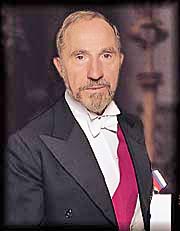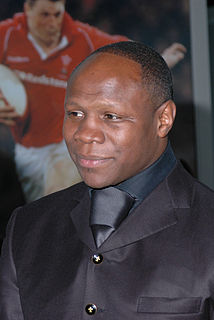A Quote by Nigel Hawthorne
I really ran away in 1951 from South Africa, where I lived with my mother and father - who was a doctor - to come back to England to find myself, then hide what I found.
Related Quotes
My agents were like "Come to L.A., we've got meetings for you." I was like "No, I'm doing this now." Then my father became very ill back in England, and I didn't want to be away. I went back to England and did a bunch of crazy indie movies, all of which I loved with a passion, and none of which did any business.
When President Mbeki said, if you get AIDS, you can have a shower and it goes away. It's like, oh, come on. Or it's caused by poverty. We faced those kind of issues. But now, with the new regime, they have really woken up, paid attention. And when South Africa speaks, then the whole of Africa will listen. And I have got great hopes for that.
When I was in government, the South African economy was growing at 4.5% - 5%. But then came the global financial crisis of 2008/2009, and so the global economy shrunk. That hit South Africa very hard, because then the export markets shrunk, and that includes China, which has become one of the main trade partners with South Africa. Also, the slowdown in the Chinese economy affected South Africa. The result was that during that whole period, South Africa lost something like a million jobs because of external factors.
There is a core of loneliness. It's partly existential. Secondly, I was raised a loner. My parents were not there. My father was asked to leave because he couldn't metabolize ethanol. Actually, my mother ran away with us when I was 2 months old and my brother was 5. Real dramatic stuff: down the fire escape, through backyards. So, I sort of raised myself. I was alone a lot and I invented myself - I lived through the radio and through my imagination.
And now South Africa has finally woken up and it is doing great things. And if South Africa becomes the template to what AIDS is in the sub-Saharan continent, then all the other countries are going to follow suit. And Michel Sidibe, who spoke at the breakfast meeting this morning, was saying that there is so much hope for Africa now that South Africa has got its house in order.
Living here in North America - I have been Americanized. When I go back home now, there are things that I have far less tolerance for in South Africa. We've come such a long way in terms of race relations and the economy as well as people's willingness to move on. There are still a lot of things that are frustrating about being in South Africa.

































